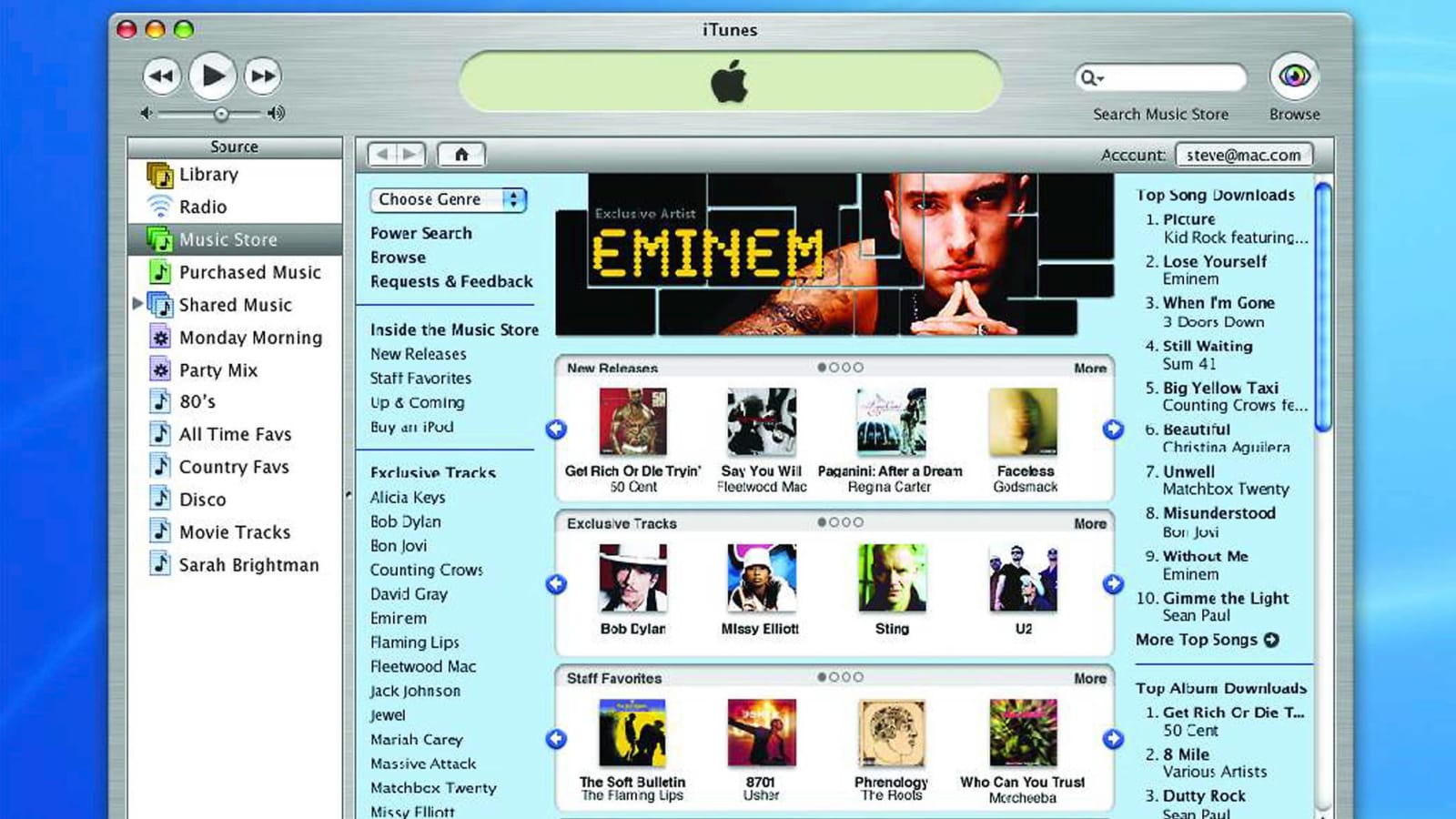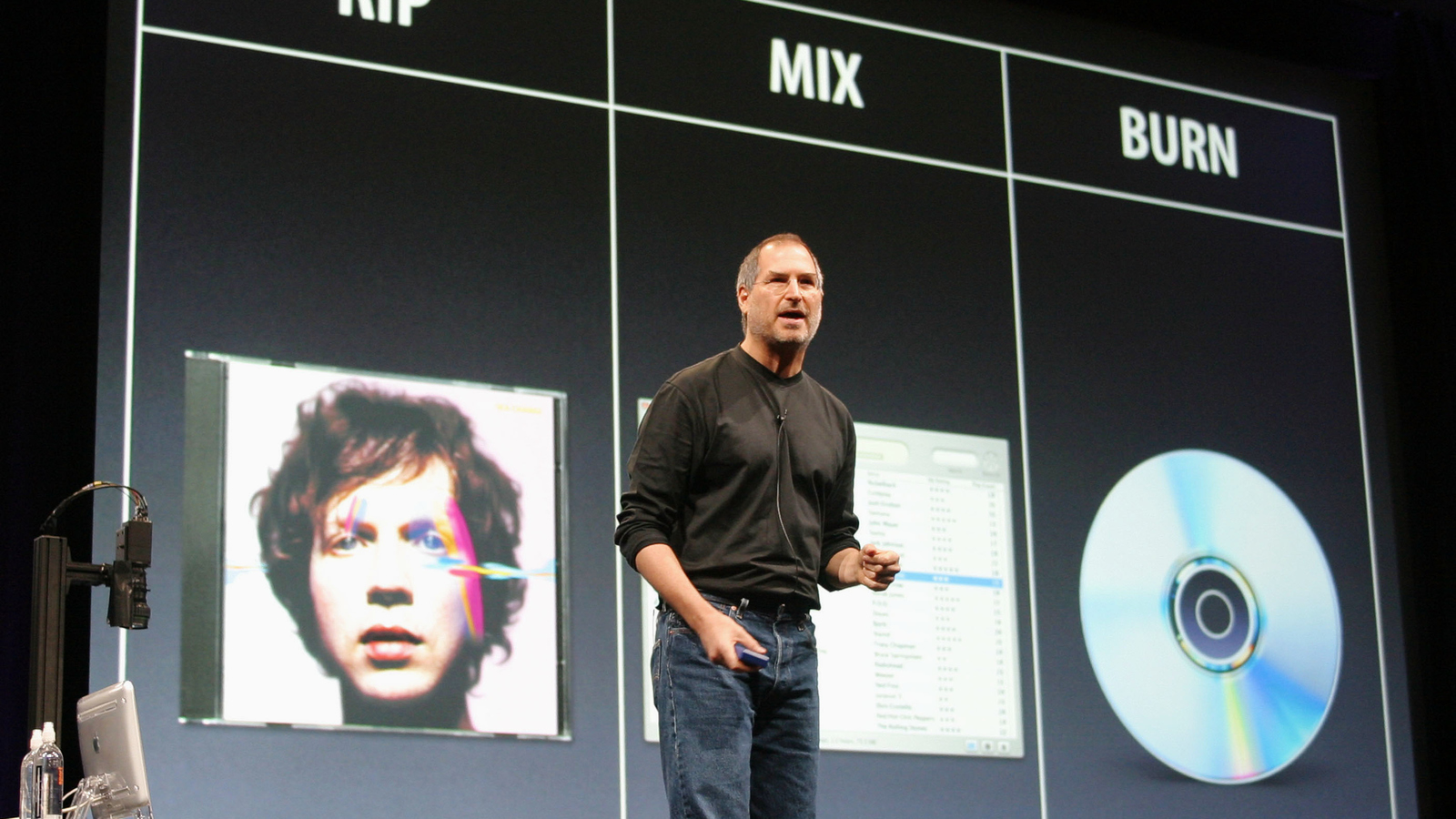
15 years ago, iTunes changed everything
In order to fully appreciate what iTunes has done for us in its glorious 15 years of existence, you really have to understand how insane it was trying to buy music in the 15 years prior to its birth.
As pop critic Chris Molanphy notes in the great Slate podcast "Hit Parade: The Great War Against the Single Edition," record labels in the '90s realized what the power of scarcity was. While MC Hammer's "U Can't Touch This" was a smash hit, the label opted to, at the height of the song's popularity, pull the physical CD single from retailers, creating a vacuum of intense demand. With this catchy song in your head, the only way to relieve yourself from this earworm was not to buy the CD single as you had been able to do before, but instead buy the album – the full album. Slowly, these overstuffed multi-track CDs were getting marked up more and more, and before long you were spending $18.99 for a full-length Chumbawamba album when all you wanted was "Tubthumping."
While Napster and the digital file-sharing revolution gave the record industry some pent-up karmic retribution (to which the industry responded by infamously suing its own consumers), there was no easy solution of how to solve the problem of music suddenly being "free" and "everywhere" all at once. Slate's Molanphy states the rest plainly: "When Apple found Steve Jobs negotiated with the record labels to sell their music on his new iTunes music store, he held firm on one key negotiating point: for the sake of user-friendliness and transparency, every song on the store would be available for sale for about a dollar. In that one detail, Steve Jobs upended four decades of music industry gospel, and he revived the singles market. Now, in essence, there was no such thing as the album cut. All songs were singles. Within a half decade, even some digital music holdouts like Led Zeppelin and The Beatles allowed their music to be sold digitally, à la carte."
Indeed, when iTunes debuted, everything about it made sense : the product lineup was vast, the prices were reasonable and, most of all, it was all very accessible. You could download The Roots. Your grandma could download Bob Dylan. Your favorite band could put out a quickie covers EP because it was cheap, easy and fun. All in all, it just made sense.

If Napster and other file-sharing sites were the Wild Wild West of song-grabbing – leaving you with no idea about the quality or even content of downloading a file that was labeled as Will Smith's "Wild Wild West" – iTunes was the first sign of true retail civilization. When you bought "Day Tripper" by The Beatles, you knew you were getting "Day Tripper" by The Beatles and nothing else. By going through official, paid channels, a sense of stability was reached within the song distribution market, up to the point where digital releases soon became the new standard.
For music fans both hardcore and casual, this meant that suddenly a universe of songs was right at your fingertips. No longer were you hunting down rare or hard-to-get albums in used record store bins. Instead, you could literally just buy that album and have it in seconds. "Rare" albums suddenly became readily available, and with all of these being digital copies, there were new albums added literally every day, meaning that if there was an obscure Dolly Parton single you've been dying to track down, there's a good chance you could find it within the next 15 seconds – and it would be ready for purchase.
Along with the iTunes store came the revolution of having devices devoted solely to your iTunes experience. iPod, iShuffle, iPod Mini – there were countless ways to take your music with you, and best of all, it all synced together. Your entire music library was in your jeans pocket. While audiobooks and radio programs had been available on CD for years, the iTunes revolution brought about a new style of talk show developed just for iTunes and its on-demand ways. iPods gave way to "podcasts," and suddenly it felt like there was a talkative gaggle of people who were willing to ramble on about your favorite topic any time you wanted to hear them. Did you want to hear an episode-by-episode recap and discussion about "Buffy the Vampire Slayer"? Or a breakdown of the current Toronto Raptors roster? Or the latest polling for that big upcoming election? It was all there, all available for you, and in some cases (like, say, with "Serial"), a podcast would become such a cultural institution that it would, in turn, inspire its own podcasts. What was once an ad-hoc community discussion platform was now becoming an entertainment force in its own right.
Make no mistake: iTunes absolutely changed the music industry as we know it. Make some mistakes? Hey, it happens to everyone, even Apple. iTunes has still had some quirks and gaffes from time to time. DRM files (to be used on your computer and only your computer – forget about sharing it with friends!) were a headache for some, just as many were wondering how to get this U2 album off of their iPhones that suddenly appeared in the dead of night in 2014.
These days, the iTunes formula has been adapted, reworked and utterly transformed by countless imitators, which is why your music playing options come in so many forms, from Tidal to Spotify to Pandora to Bandcamp to SoundCloud to YouTube to whatever fancy new platform takes prominence years from now. Music has never been more readily available to the world than it has been right now, and a big reason we're here is because of the innovations that iTunes brought us – and our love of the single.
More must-reads:
- Life after death: The best and worst posthumous albums
- What were the biggest hits when iTunes launched?
Trending in Entertainment
Customize Your Newsletter
 +
+
Get the latest news and rumors, customized to your favorite sports and teams. Emailed daily. Always free!


